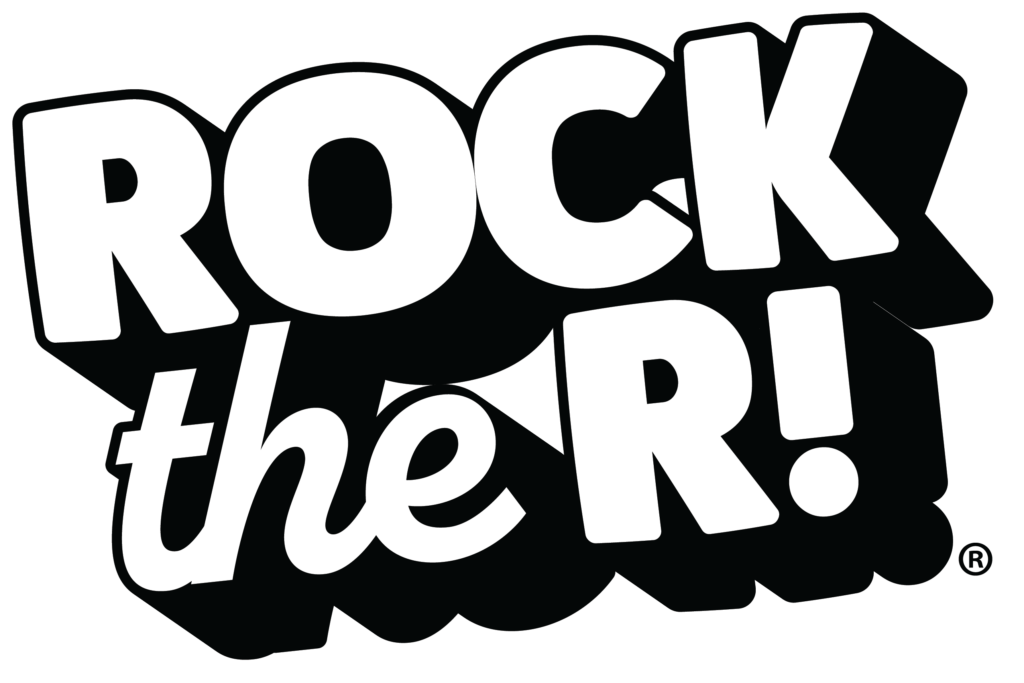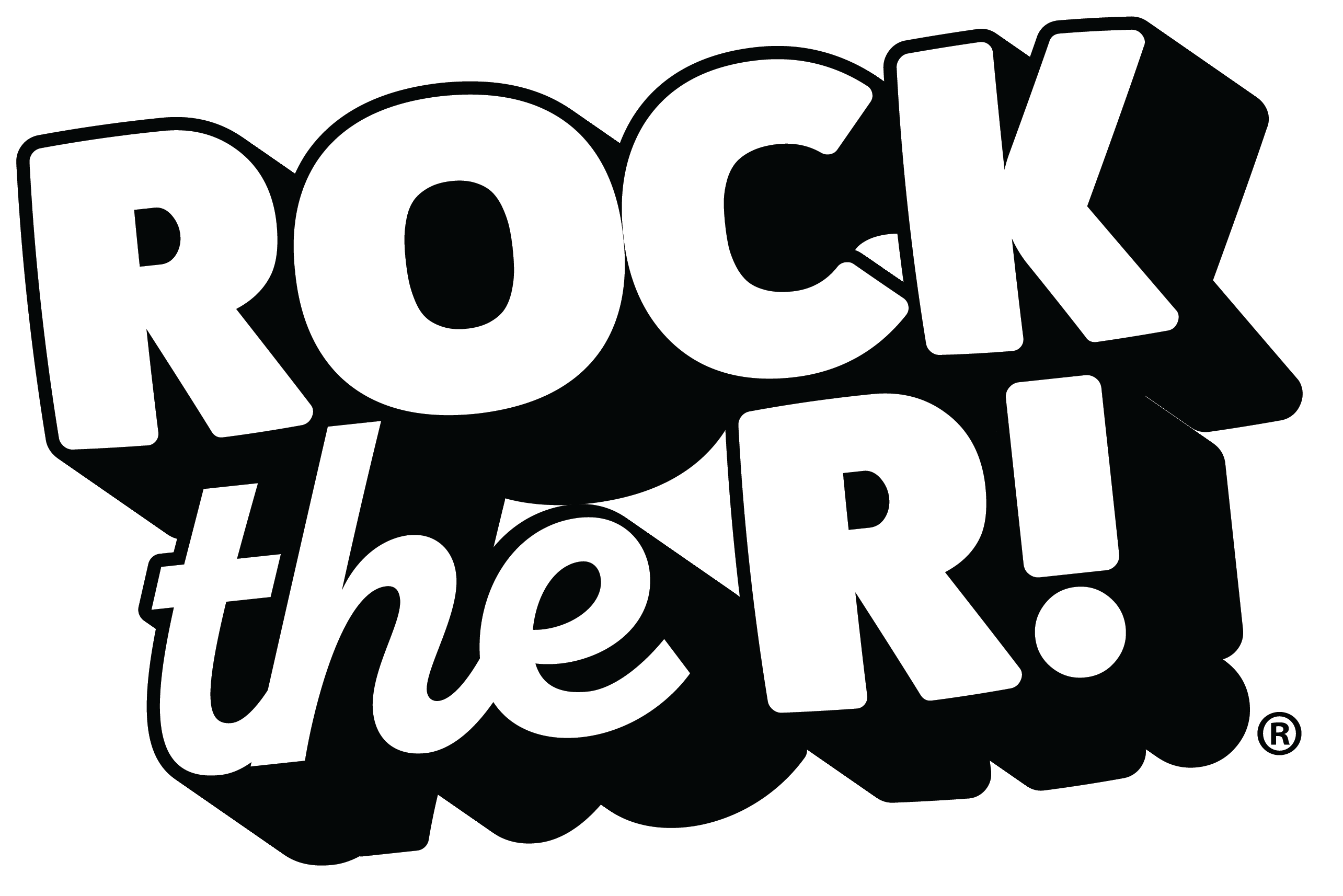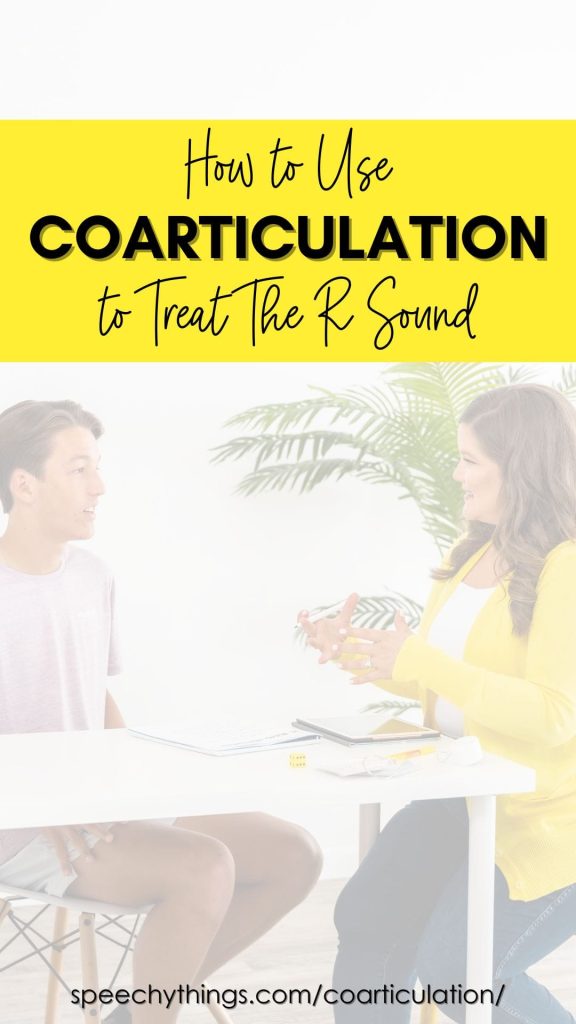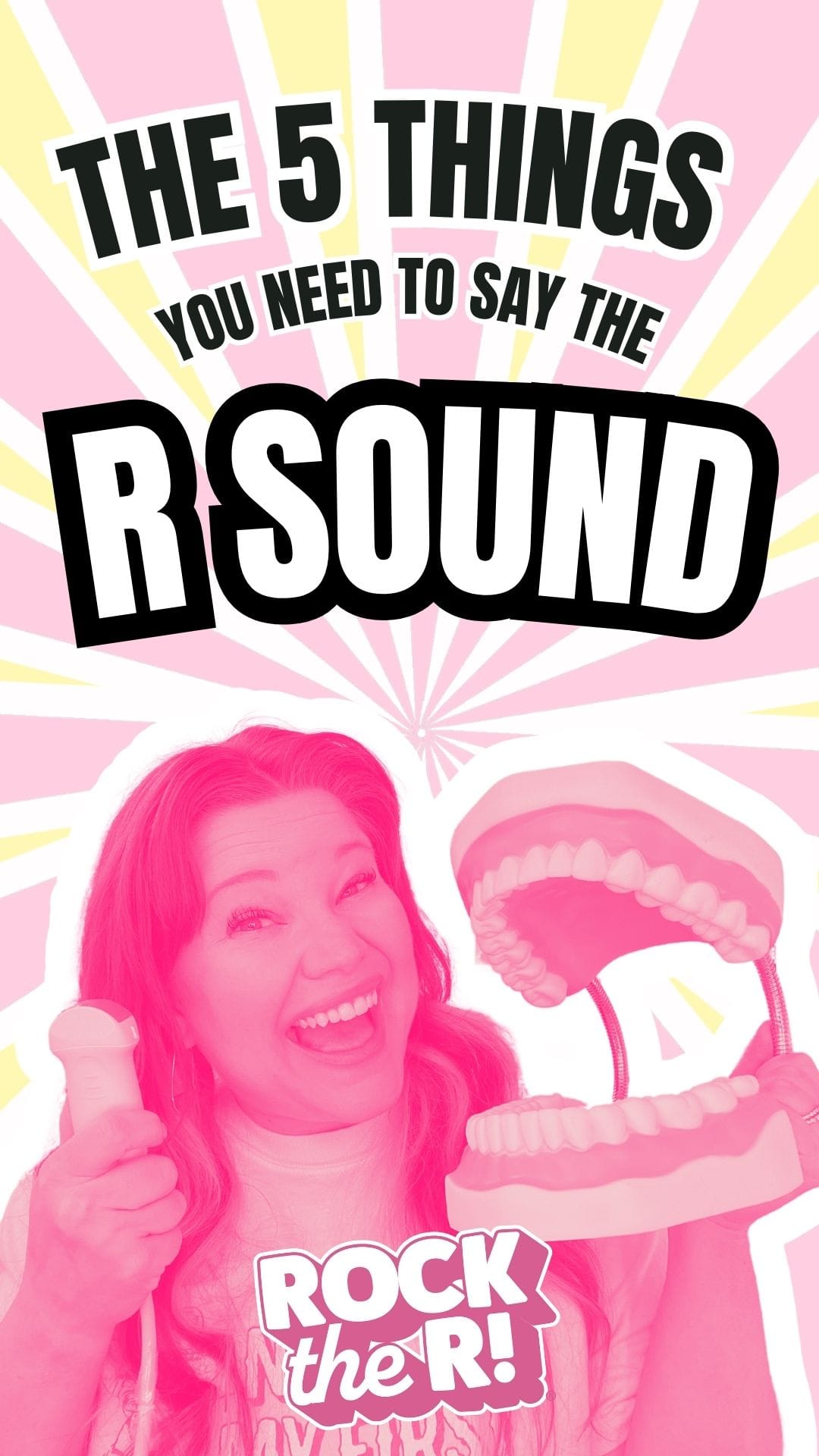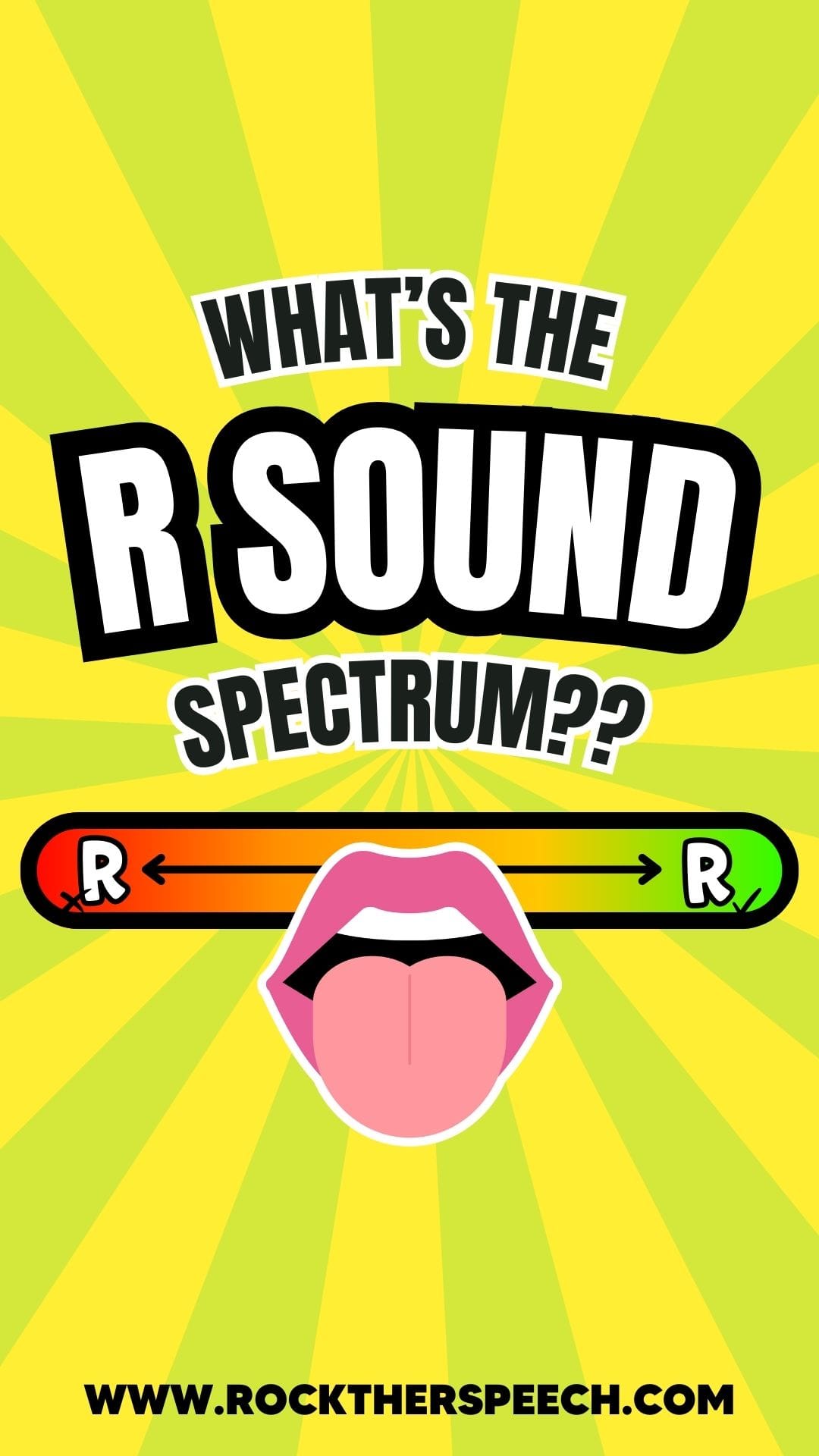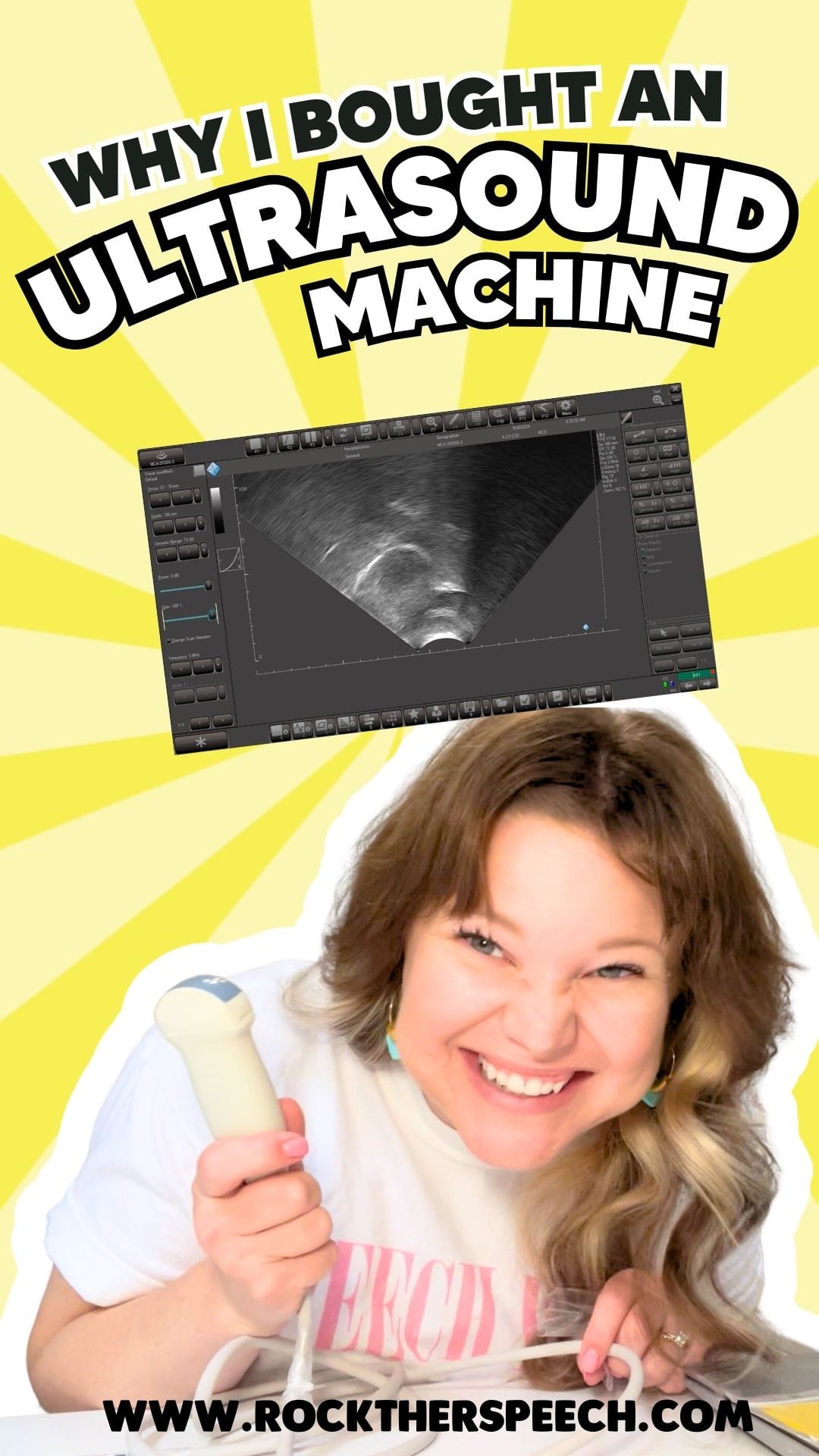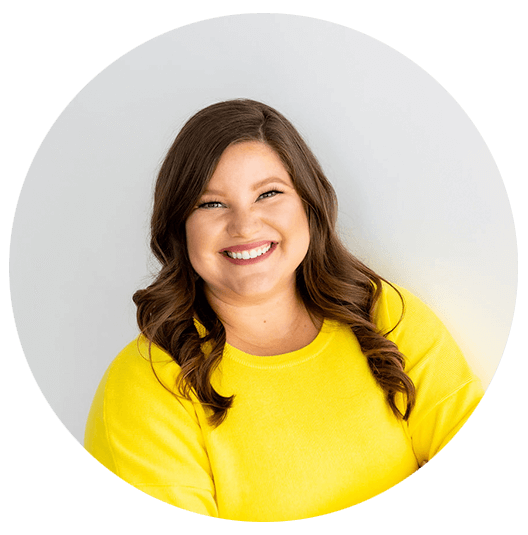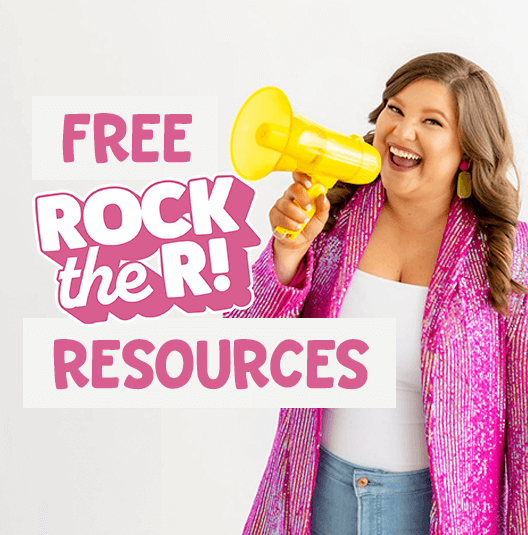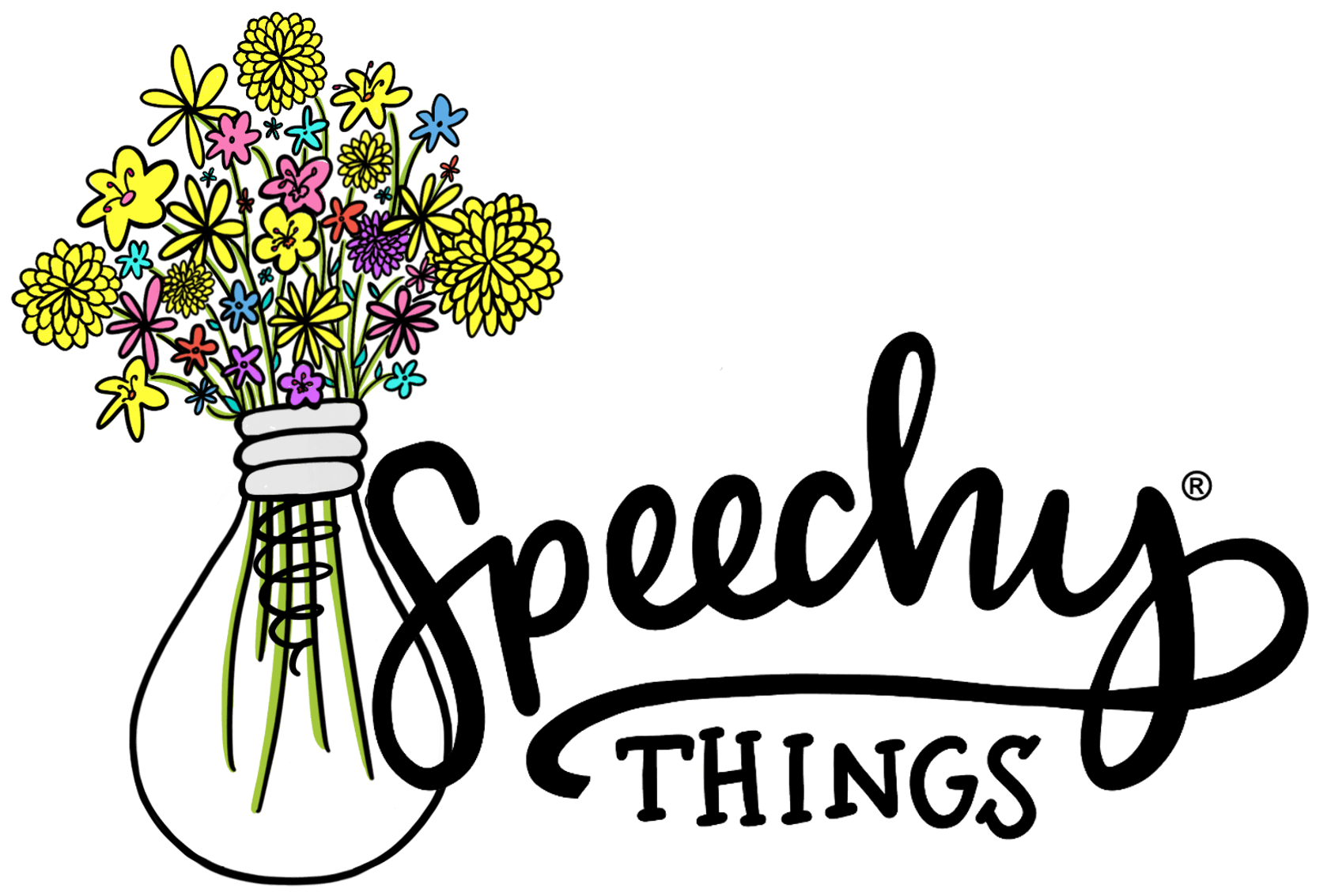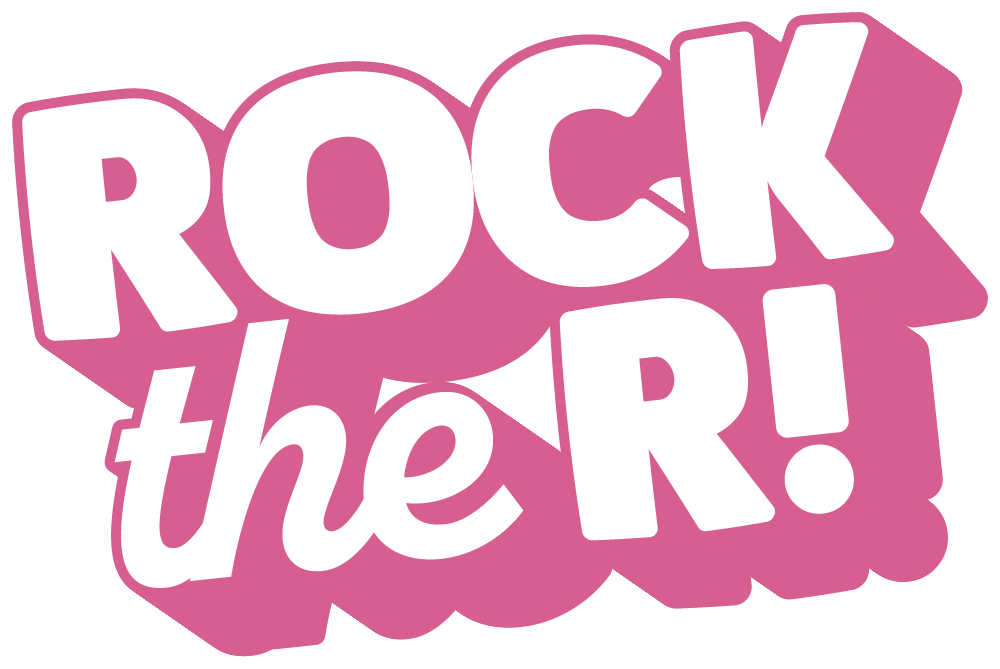Let’s talk about coarticulation. In my humble opinion, it is one of the most powerful tools when it comes to treating articulation disorders, particularly for the R sound. I use it constantly in my speech therapy sessions as a strengths-based way to achieve multiple variations of the R sound. Let’s dive in, shall we?
What is coarticulation?
Coarticulation is the concept that a given phoneme influences its neighboring phoneme(s) during speech production. It’s what helps us produce smooth, connected speech.
Let’s take the words “read” vs “room” for example.
When I say “read” I can feel the corners of my lips starting to tense in preparation for the /i/ that comes after the R. This is called anticipatory coarticulation. My articulators are anticipating the phoneme that comes next. When I say the word “room” my lips don’t have as much to change so I can feel them stay more relaxed and a little rounded throughout the word.
Now let’s try the words “tour” vs “tear” (as in “tear the paper”).
Have you ever noticed that some vocalic Rs are more difficult for students to produce than others? This is often due to carryover articulation. “OR” words for example are notoriously difficult. The rounded vowels tend to complicate the R. I think this is often because so many students have used a /w/ substitution for so long. Their lips are rounded and almost in place for a /w/ thanks to that round vowel in OR words. I much prefer to start with “AR” words or “EAR” words, personally. The /a/ in “AR” helps get tongue retraction. The /i/ in “EAR” gets a high tongue body and helps prevent over-rounding the lips in a /w/ distortion. All of these features are shared with the R and complement it.
What is a “strengths-based approach”?
In short? A really good idea.
Using a strengths-based approach to target any speech and language goal simply means using a student’s or client’s strengths to leverage progress in an area that is more challenging for them. Think of it as choosing their strength as the point at which you begin your teaching so that when you scaffold the skill toward the ultimate goal, they have some success to stand on. This is all outlined in the R Coarticulation PD I did for Bjorem Speech, so be sure to check out that video- it’s linked in the description.
WHAT DOES USING A “COARTICULATION TECHNIQUE” FOR SPEECH THERAPY LOOK LIKE?
I think there are a few different ways to look at this. One could be choosing facilitating contexts. This means choosing targets that tend to help support the R because they share features (like above when we discussed AR and EAR words).
The other side of this means taking a word that your student can say to help them say a word that they struggle with by placing them side-by-side. Think of it like using the R as a magnet or some sort of connector piece for a train track set. Did I just make it more confusing? Let’s break it down.
How can I use coarticulation to get the R sound in different contexts?
Let’s start with figuring out which variation of R your student is already good at. (If they’re not stimulable for R, skip to the next section.)
The “big idea” here is to emphasize the R word they’re good at to help them say the rest of the combination. Over time, you fade the “good” R word so that only the “challenge” R word remains.
Let’s show some diagrams!
The big idea here is having a student focus on the type of R they are strongest at (depicted by the image “glowing” and the target word bolded and underlined beneath.)
We combine the strong variation of R with other R words to create new R multisyllabic words. We fade the strong word until it’s perhaps a whisper or just a thought, so that the target word remains.
The first question to ask yourself is “what type of R are they good at?”
If your student is good at Initial R words…
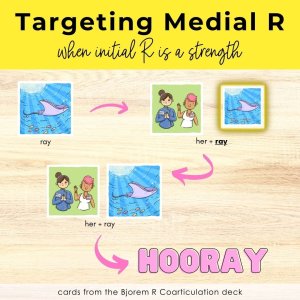
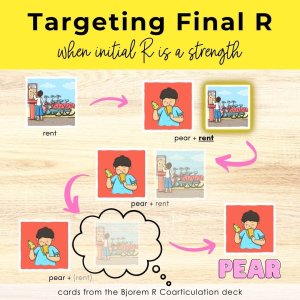
If your student is good at Medial R words…
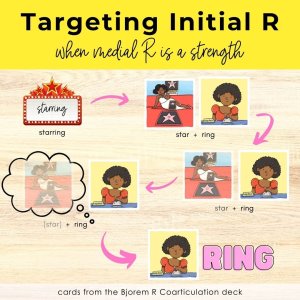
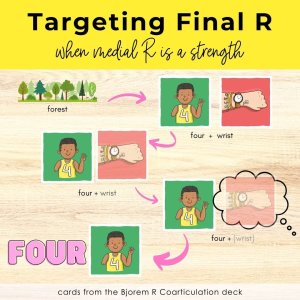
If your student is good at Final R words…
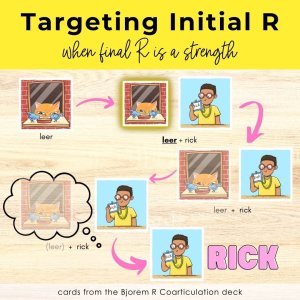

What if they can’t say R at all?
Then focus on using facilitating contexts to elicit that first R. You can find a lot of elicitation techniques in my R Cue Database.
Additional Coarticulation Resources
R Coarticulation Cards: https://www.bjoremspeech.com/products/r-coarticulation
R Coarticulation FREE PD: COMING SOON! When it’s available it will be linked in the description here- https://www.bjoremspeech.com/products/r-coarticulation
R Coarticulation IG Highlight: https://bit.ly/r-coarticulation-ig-highlight
I know this may be confusing at first but you will get the hang of it, I’m certain! And check out that free PD when it’s posted and my Instagram highlights for therapy video examples. Meanwhile, if you’re interested in more R sound tips, be sure to sign up to be a VIP and get access to my freebie library. You’ve got this! I can feel it.
Cheers!



